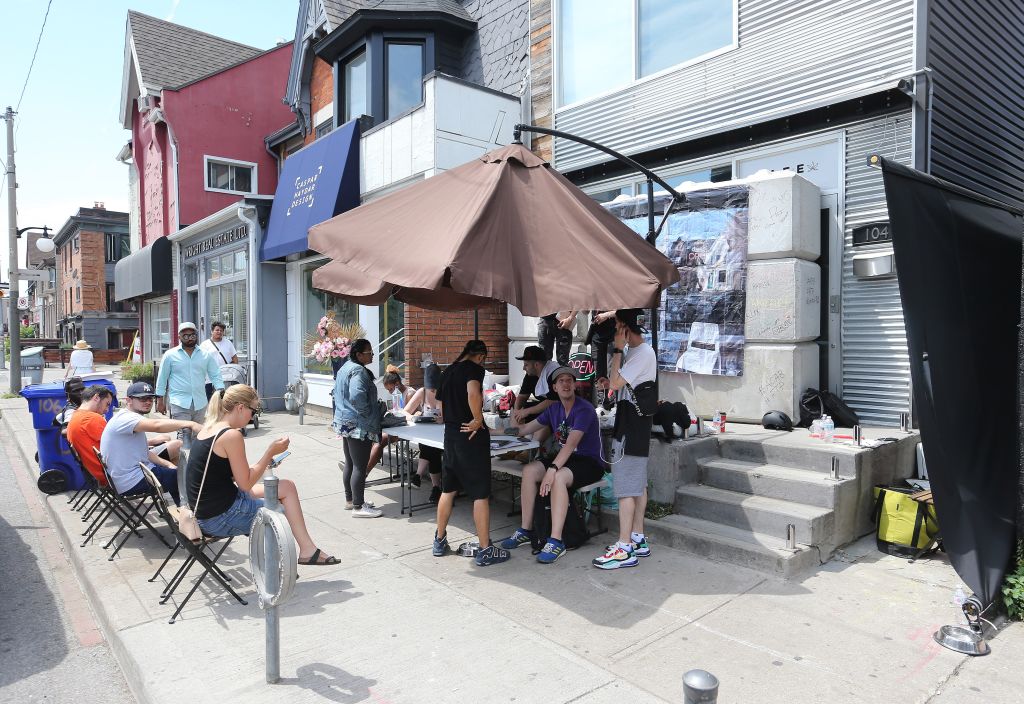As promised, the names of 42 applicants across Ontario who won a lottery that may allow them to open a cannabis store were announced Wednesday,

In the normal course of things, their 42 proposed sites would have been announced as well.
But there were only 41 on the list: a a former restaurant in downtown Oshawa appeared twice, and a further three times on the wait list.
Was that against the odds? Well, yes and no. it was entered a total of 173 times in the lottery, which would have cost $12,975 in $75 entry fees.
Looking at data on the full list of 4,864 cannabis store applicants released Wednesday by the by the Alcohol and Gaming Commission of Ontario, the province’s regulator, it’s clear that some would-be operators, or their would-be landlords, left as little as possible to chance. The average winning property was submitted just over 24 times, while the average losing property was submitted just twice.
Data was released Wednesday by the province’s regulator.
Three properties on a retail strip near Hwy. 400 in Innisfil also won. The odds were stacked in their favour, too: one had 43 entries, one had 33 and one had 50.
- Gas prices surge in some parts of Canada. What’s causing pain at the pumps?
- Roll Up To Win? Tim Hortons says $55K boat win email was ‘human error’
- Ontario premier calls cost of gas ‘absolutely disgusting,’ raises price-gouging concerns
- Netflix beats subscriber targets, but revenue falls short of forecast
However, the luck of the draw is the luck of the draw, and there were exceptions on both ends.

An address on Arthur St., a commercial strip in Thunder Bay, was entered 92 times ($6,900) to no avail, though it did make the wait list. Another at 300 Lakeshore Drive in North Bay was entered 80 times and didn’t get the golden ticket, which is probably just as well, since a store just down the street at 390 Lakeshore (eight entries) did win.
Seven winning entries only submitted a property once. They included 104 Harbord St. in Toronto, a former grey-market dispensary which is now barricaded with massive concrete blocks, placed there by frustrated city officials who have made many attempts to close it.
Where did people ask to operate cannabis stores across Ontario? See our interactive map
“The AGCO allowed multiple entries on sites,” says Toronto cannabis lawyer Matt Maurer. “They clarified that in advance of the lottery.”
“From the landlord’s perspective, it’s maximizing their odds that a vacant property will become tenanted. If I’m a landlord, and I take one entry, you’ve got a one in, whatever it was, 5,000 chance of winning. If I take 10, I’ve just increased my odds that I’ll have a tenant substantially.”
Winning the lottery only means that a person, or company, is invited to apply for a store licence.

Ottawa cannabis lawyer Trina Fraser points out that the multiple entrants for any given property would have to be unaffilated with each other.
“To the extent that we’ve been seeing multiple winners at the same property, I’ve been assuming that they’ve been non-affiliated winners. If they are affiliated, they’re all disqualified.”
Fraser thinks the process could have been much more rigorous.
“Clearly they tried with these pre-qualification requirements to create some element of merit to enter the lottery, but it didn’t quite work, as we’re seeing.”
“They could have said ‘You have to have a distinct property, and it’s your responsibility to make sure contractually, that the landlord is not entering into duplicate offers to lease with other parties or you all get disqualified. That would have made it a lot harder to enter.”
Manitoba screened applicants more carefully, she says.
“You could have had some kind of preliminary screening, you could have had various requirements that related to your proposal: what kind of store you wanted to operate, where, how were you going to operate it, who are you, what is your experience, and there could have been a point allocation system assigned to that. That would have been a much more labour-intensive process for the AGCO to go through.”

We asked Ontario’s Ministry of the Attorney-General, which oversees AGCO, why multiple entries were allowed for the same address. They didn’t answer directly.
“Being selected in the Alcohol and Gaming Commission of Ontario’s lottery was only a first step in the process of obtaining a retail cannabis licence,” spokesperson Jenessa Crognali wrote in an e-mail.
“Those selected must now submit their licence application. The AGCO will then undertake a comprehensive eligibility review of the applicant and of any interested parties to the applicant.”


Comments